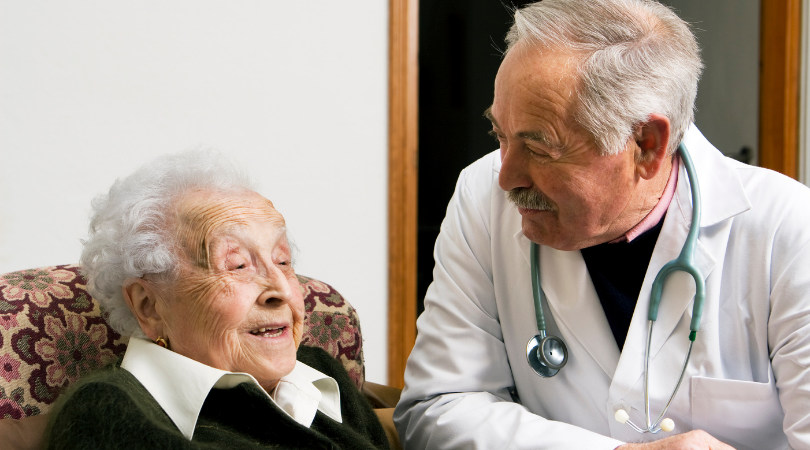How to Treat Skin Tears

As we age, our skin becomes thinner and more fragile. Bumps, scratches, and cuts happen more easily and take longer to heal. Skin tears become more common. Seniors may also be facing diabetes, poor nutrition, poor circulation, or a weakened immune system which makes healing more difficult. Understanding how to treat skin tears is essential to avoid infection and other serious complications.
How to Prevent Skin Tears
The best way to prevent skin tear complications is to prevent skin tears from happening. There are several things that seniors can do to protect their skin and avoid skin tears.
- Prevent your skin from drying out. Don’t take long showers or baths which can dry the skin. Use pH-balanced or soapless cleansing products instead of regular soap. Use moisturizing lotion frequently throughout the day, especially after bathing or washing hands.
- Wear long sleeves and long pants that protect your skin. Be careful with clothing that has zippers to avoid catching your skin in them.
- Eat a healthy diet to ensure you are maintaining good nutrition.
- Assess your home for fall risks. Make sure pathways are clear, remove clutter, keep the home well-lit, and pad any sharp edges on furniture.

How to Treat Skin Tears
Skin tears are a common minor wound that can often be treated at home. The most important goal of treating a skin tear is preventing infection. Use the following steps:
- Before treating a skin tear, wash your hands thoroughly with soap and water. If possible, wear gloves when treating your loved one’s wound.
- If the skin tear is bleeding, apply pressure and try to keep it elevated.
- Gently rinse the skin tear with water or a saline solution, being careful to not cause additional tearing.
- Allow the skin tear to air dry or pat it dry very carefully. It is important to not rub the wound.
- If there is still a flap of skin, carefully place it back in position. Do not stretch the skin or force it into position.
- Finally, cover the skin tear with petrolatum gauze which is available at most pharmacies. Do not use an adhesive bandage as these can cause additional damage.
Keep the wound clean and covered until healed.

When to Contact a Doctor about a Skin Tear
Without proper treatment, skin tears can become a serious concern. Contact a healthcare professional immediately if you notice any of the following symptoms:
- Bleeding that won’t stop
- Increased pain, swelling, warmth, or redness around the tear
- Red streaks leading from the tear
- Pus draining from the tear
- A fever
While skin tears are often minor, if you notice anything unusual, speak to a healthcare professional to ensure no complications develop.
Crossroads Hospice & Palliative Care provides care and support to patients facing serious and terminal illnesses. Please call us at 1-888-564-3405 to learn more about our hospice and palliative care programs.
If you found this information helpful, please share it with your network and community.
Copyright © 2021 Crossroads Hospice & Palliative Care. All rights reserved.




